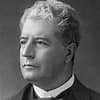
Alternative treatment for veterans.
A unique treatment approach incorporating ice baths, structured exercise, and cooking classes has demonstrated positive outcomes for individuals with treatment-resistant PTSD, according to military veterans. A former Afghanistan veteran, previously at a low point post-medical discharge from the army, shared his struggle with suicide attempts, imprisonment, and alcohol benders. Traditional clinical group treatments proved ineffective, leading him to seek alternative solutions.
The turnaround came when he enrolled in a 12-week program at Hope in Health, a four-bedroom home-style treatment centre in Northern New South Wales. The multidisciplinary team, including psychologists, a personal trainer, social workers, and a chef, developed a personalized plan focusing on retraining both mind and body. The daily regimen comprised yoga, ice baths, exercise, mindfulness, and cooking classes, providing a tailored approach to recovery.
Hope in Health’s co-founder emphasized treating military veterans as elite athletes, addressing the underlying causes of PTSD or addiction issues. The program aimed to repair physical and mental health by employing physiotherapy, acupuncture, massages, and specialized training techniques.
While the Department of Veterans Affairs funds such experimental rehabilitation programs for thousands of ex-military personnel annually, concerns have been raised by some experts. A psychiatrist from the Australian College of Psychiatrists questioned the long-term efficacy of alternative approaches and emphasized the need for evidence-based interventions.
Another military veteran highlighted the challenges of transitioning from a highly structured military life to civilianhood, advocating for more personalized mental health facilities. In response, the Currumbin RSL’s Veterans Support Centre introduced pilot initiatives, such as gardening, running, and wildlife-focused clubs, to engage veterans in the Gold Coast and Tweed Coast regions.
The Royal Commission into Defence and Veteran Suicide, prompted by 13 urgent interim recommendations, urged simplification of the claims system for veterans. The Department of Veterans Affairs affirmed its commitment to enhancing mental health and welfare approaches in response to the Royal Commission’s findings.



